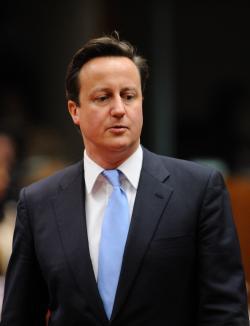LONDON—As I write, men in expensive suits are sitting in slick offices all around me, talking on the phone to Almaty and Bangalore, swapping bonds and oil wells.
The men—and they are mostly men—are of many nationalities: Russian, French, Libyan, Nigerian, Italian, Turkish, Indian, Brazilian, Ghanaian, Kazakh, Chinese, Japanese, and more. They live here in London, however, because London wants them. London doesn’t mind if they drive up the contemporary art market, occupy Knightsbridge, or crowd into overpriced sushi bars near Berkeley Square, so long as they keep British banks and trading floors in business. Foreign billionaires—we’re talking the .001 percent, not the 1 percent—find London more hospitable than Paris, more cosmopolitan than New York. One of them told me not long ago that New York has become downright provincial by comparison, with a business community dominated by Wall Street rather than global entrepreneurs. So he stays here—in the “right” time zone, halfway between New York and Moscow—where he can always catch a fast plane to the Far East.
I haven’t done the math, and I can’t tell you how much these men talking on the telephone contribute to the “real” British economy, even assuming that such a calculation is possible. But they certainly contribute to British politics, and to Britain’s sense of its place in the world and its economic future. In an indirect and sideways manner, they have also contributed to the extraordinary British decision, taken in the early hours of Friday morning, to walk out of a last-ditch treaty designed to save the European currency—a decision that might mean Britain eventually walks out of European institutions altogether.
In fact, the British Prime Minister, David Cameron, did not intend to emerge from negotiations in total isolation. In essence, he tried to blackmail the rest of Europe: You agree to give special protections to the City, Britain’s financial services sector—all of those men doing deals in offices—and we will agree, grudgingly, to a new European treaty or amendments to those which already exist. But some of what he wanted was redundant, and some of it was presented too late or with too much arrogance. “Nobody understood what Cameron wanted—nobody,” one diplomat told the Financial Times. “We were talking about big things—saving the euro—and he was asking for peanuts. It was not the time or place.” So the 26 went ahead and did a deal without him.
Everyone else in the room thought the priority was to save the European economy, and they arrived prepared to give things up. Cameron behaved (in their view) like his priority was to save the City, and he arrived with demands. As an even more undiplomatic diplomat told me, “he cares more about those spivs in the City than he cares about us.”
Which is undoubtedly true: For the City now dictates Britain’s outlook on the world more than ever before. Of course Britain has long seen itself as a trans-Atlantic player, not a mere European one. Conservative Party Euro-skeptics have recently gained in stature thanks to the euro crisis that they accurately predicted 15 years ago. There is a good deal of truth in the old clichés about the gap between the Anglo-Saxon mentality and the Continental mentality. At the same time, something has altered further in the London mentality, if not the British mentality, in the past decade. Britain’s recession, the worst in decades, is almost invisible in booming central London. And the London City now has more in common with an offshore hub like Dubai than it does with Paris or Berlin.
Nobody agrees about what the consequences are now going to be. Some think this is a real turning point: The rest of Europe will forge ahead with a closer fiscal relationship and will simply begin making treaties without Britain—treaties that the British and their banks will simply have to follow if they want to do business with their nearest neighbors. Others note, accurately, that the new treaty arrangements (which still may not prevent economic crisis, by the way) will be under negotiation for a good while longer, and the British may find a way to slide themselves back into the loop if they want to.
But even if everyone keeps muddling along, as they so often do, this sudden moment of isolation won’t be quickly forgotten. Cameron returned home to read gushing accolades in the British press, which cheered his willingness to sacrifice everything in the name of protecting British financiers. He would have received such coverage in no other European capital, because no other European capital thinks quite like London, and no other European capital will think like London anytime soon.
